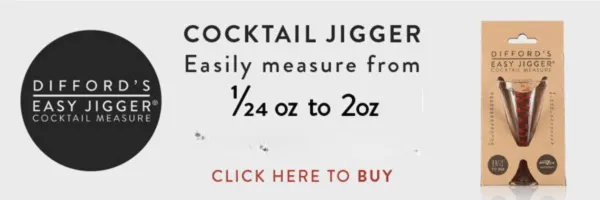Are you a Discerning Drinker?
Join thousands of like-minded professionals and cocktail enthusiasts, receive our weekly newsletters and see pages produced by our community for fellow Discerning Drinkers.

Don Fortino Ramos is an award-winning first-generation Maestro Mezcalero who has been making mezcal for forty years and set up his own palenque in 1998. He has been a partner in The Lost Explorer since its launch in 2020 when the quality of his mezcal ensured the new brand was well received by mezcal connoisseurs.
The answers to the following questions tell much about the man behind the mezcal.
Where did you grow up?
I was born and raised in San Pablo Huixtepec, a town in the heart of Oaxaca. It's a place where the land, tradition, and community shape who you are. Growing up surrounded by agriculture and Oaxacan culture deeply influenced my values and my path.
What did your parents do? Was there any family connection to mezcal?
My parents worked in agriculture, not in mezcal production. There wasn't a direct family tradition tied to mezcal, but it was always present in our lives-at celebrations, ceremonies, and community gatherings. I was the first in my family to step into mezcal production, driven by passion and a desire to build something rooted in my heritage.
Tell us about your education. Did you take any science-related studies that helped with distillation?
I completed secondary school, and while I didn't pursue a university degree, I've always been a curious learner. Being able to read and write gave me the tools to continue educating myself. Over the years, I've studied mezcal through experience, technical readings, and constant refinement of the craft.
When and where did you start in the drinks industry?
I started in November 1999, right in my hometown of San Pablo Huixtepec. It began as a small project with limited resources but a strong sense of purpose.
What led you to establish your own distillery? Why San Antonio?
My family-owned land in San Antonio, and we saw an opportunity to create something meaningful from it. Building the distillery was challenging in the beginning-gathering equipment, aligning resources-but it was always guided by a clear vision: to honour the agave and to work with intention, sustainability, and respect for tradition.
Did you live next to the distillery from the outset?
Yes, I lived inside the distillery for a long time. Now I live right next door. I like to say: "Either the mezcal goes in, or I do." Living so close allows me to stay fully present and connected to every step of the process.
How did you meet David and the team from The Lost Explorer?
We met through a mutual friend. From the beginning, we shared a passion for mezcal and a vision rooted in sustainability, cultural respect, and global storytelling. That connection led to a natural and meaningful partnership.
Tell us about the collaboration and shared vision for the future of the distillery.
We were united by a common goal: to craft the best mezcal while honouring the environment and enriching everyone involved in the process. That shared vision allowed us to grow together with purpose and impact.
Did you encourage Xitlali to join, or was it her decision?
It was entirely her decision. Xitlali has a deep appreciation for culture, storytelling, and authenticity. Watching her bring her own energy and creativity into the project has been a great source of pride and joy for me.
You produce mezcal using traditional methods, but applying scientific principles. How do you integrate the two?
We have adapted our process in accordance with NOM-070 in the "artisanal" category. We have modernised certain elements, such as replacing firewood with gas in one of the ovens (we still use the traditional oven, but only 30% of the time per batch) and the distillation, to increase efficiency and sustainability. We have also introduced grinding machines to reduce the work of the horse, while respecting traditional methods.
You have a unique redistillation method for heads and tails. Can you explain that?
In distillation, we separate heads, hearts, and tails. We focus on the heart for its purity, but we collect the heads and tails separately. Once we have enough, give that batch a third distillation. From there, the remaining heads and tails are discarded. It's a delicate process that ensures quality and minimizes waste.
What is your favourite variety of mezcal and why?
I'm particularly drawn to Salmiana and Tobasiche. Their earthy, herbal profiles speak to the land and offer a depth that I find incredibly compelling.
What are your thoughts on aged mezcal? Will you produce one?
Personally, I prefer joven or blanco mezcal, where the purity of the agave is at its fullest expression. At the moment, I have no plans to produce an aged variety, though I respect others who do it well.
What do you think about cristalino mezcal? Will you make one?
It's not something I resonate with. I believe mezcal should be transparent-both in its process and in its presentation. A cristalino isn't part of our vision.
What are your ambitions and vision for The Lost Explorer Mezcal?
My ambition is to be recognized as one of the great mezcal maestros and to help lead The Lost Explorer to international success-always with integrity, authenticity, and respect for the land. Our goal is to grow globally while staying rooted in tradition and sustainability.





Join the Discussion
... comment(s) for Don Fortino Ramos
You must log in to your account to make a comment.